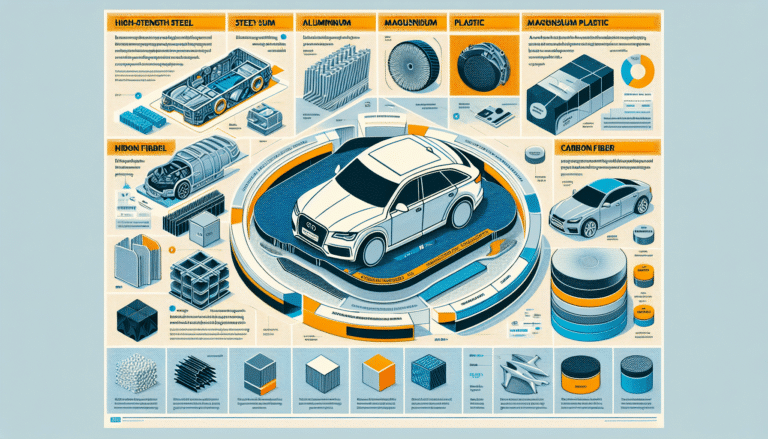Effective Strategies to Reduce Fuel Costs

In the current context, where gasoline prices continue to fluctuate constantly, it has become essential for businesses and individuals to implement effective strategies that allow them to reduce fuel expenses. These tactics not only help ease the pressure on budgets but also contribute to a more responsible and sustainable use of fuel. By adopting appropriate practices, it is possible to optimize resources and minimize financial impact, leading to better energy cost management.
In a world where fuel costs are constantly rising, implementing effective strategies to decrease gasoline expenses has become essential for both businesses and individuals. These measures not only aim to save money but also contribute to a cleaner planet by reducing pollutant emissions. Below are various tactics that can help optimize gasoline consumption and, consequently, associated expenses.
Vehicle Maintenance Optimization
Proper vehicle maintenance is crucial to ensure its energy efficiency. Attending periodic inspections and being attentive to warning signs, such as the “check engine” light, can prevent problems that increase fuel consumption. Additionally, keeping air filters clean and changing engine oil according to manufacturer recommendations are practices that can positively influence performance.
For more information on how maintenance can affect fuel savings, you can access this link.
Adoption of Efficient Driving Habits
Driving habits play an important role in fuel consumption. Driving at a moderate speed, avoiding sudden accelerations and brakes, as well as planning routes to avoid traffic, can significantly reduce gasoline expenses. Learning to anticipate traffic and eliminating unnecessary idling of the engine are aspects that also contribute to lower consumption.
Use of Technology and Applications
Nowadays, there are various applications designed to help drivers find the cheapest gasoline and track their consumption. Using these tools can facilitate the identification of service stations with better pricing and, additionally, allow for stricter control over driving habits.
Trip Consolidation
A good strategy to save on fuel is to consolidate trips. Grouping activities into a single outing, instead of making multiple trips, helps reduce car usage and, consequently, fuel expenses. By adequately planning outings and avoiding unnecessary trips, significant savings can be achieved.
Use of Alternative Fuels
Considering the use of alternative fuels, such as natural gas or electric options, can be a viable option for those looking to reduce long-term costs. Electric vehicles, for example, not only offer savings on fuel but their adoption translates to a lower environmental impact. There are initiatives that demonstrate these vehicles can save up to 960,000 colones annually for households. For more details, you can consult this link.
Environmental Awareness and Energy Efficiency
Being aware of the impact of our decisions on the environment can lead to more sustainable practices. Adopting a lifestyle that promotes fuel savings is not only beneficial for personal finances but also helps protect our planet. Implementing educational programs about the importance of reducing fuel expenditure is crucial for creating awareness.
Strategies in the Business Environment
For companies, resource optimization has become a critical necessity. Implementing fleet management strategies, designing efficient routes, and promoting driver training on driving habits are steps that not only reduce costs but also encourage sustainability. Companies that have adopted these measures have managed to generate significant savings. This link provides more details on how to optimize savings in the business context.
Investments in Efficient Infrastructure
Investing in infrastructure that favors energy efficiency can result in long-term savings. Companies and municipalities that adopt innovative technologies, such as charging stations for electric vehicles, not only contribute to the environment but can also reap economic benefits through reduced fuel expenses.
Continuous Assessment and Adaptation
Regularly analyzing fuel consumption habits and adapting to new technologies or strategies is fundamental. The constant evolution in the transport and renewable energy sectors offers consumers and companies a variety of options that can impact positively both on economic savings and environmental sustainability.
The reduction of fuel expenses has become essential in a changing economic context, where every cent counts. Constant fluctuations in gasoline prices have a direct impact on the budgets of individuals and businesses, making the implementation of effective strategies key to achieving a significant saving. Simple, everyday actions like maintaining a steady speed and performing regular vehicle maintenance can contribute to optimizing consumption.
Additionally, using mobile applications that inform about the lowest gasoline prices is an efficient tool to ensure that the least amount is spent when refueling. Consolidating trips and avoiding unnecessary routes are also techniques that help reduce fuel consumption. These habits not only benefit the wallet but also have a positive impact on the environment by decreasing each user’s carbon footprint.
In the business realm, implementing efficient routes and better fleet management are strategies that significantly reduce fuel costs. Training employees in efficient driving practices and maintaining vehicles properly results in an improvement in operational effectiveness and control over overall expenses. Organizing logistics can impact fuel efficiency and, therefore, strengthen the financial performance of the company.
Finally, it is important to recognize that every action counts. From small changes in daily habits to the adoption of measures at a corporate level, all these strategies are aimed at a common goal: maximizing fuel savings and promoting a more conscious use of energy resources, thereby contributing not only to economic well-being but also to a more sustainable future.




